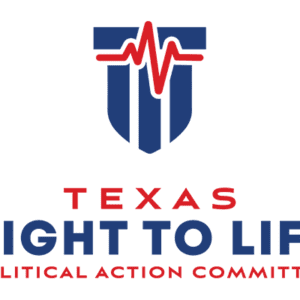Hostile Orders
There is a bill (SB 303) winding its way through the Texas legislature that upends the traditionally understood role of advance directives and medical powers of attorney.
Specifically, the bill allows doctors to issue do not resuscitate orders (DNRs) that are contrary to patient wishes, as those wishes are expressed in advance directives or by those holding medical powers of attorney for the patient.
As the name suggests, the point of an advance directive is the direction, in advance, of the measures to be used in a life-threatening situation in which the patient is rendered unable to express a preference. As an alternative, a medical power of attorney delegates end of life decisions to a surrogate who would make difficult, trusted and prudent decisions if the patient were incapable of doing so.
As a complement, DNRs were typically issued by doctors to implement a patient’s advance request, when that request was not to receive life saving measures. DNRs were not historically a vehicle to implement a doctor’s choice, particularly when that choice was contrary to the patient’s wishes. A quick google search bears this out: About DNRs, Wikipedia refers to a “legal form to respect the wishes of a patient,” the NIH says a DNR “allows you to choose before an emergency occurs whether you want CPR,” and Stoneybrook Medicine comments that “your physician must obtain your consent before entering a DNR order in your record.”
This traditional combination – of the advance directives, powers of attorney and respectful DNRs – embodies the concept of subsidiarity, which concept specifies that “any activity which can be performed by a more decentralized entity should be.” This principle is key to personal freedom, and Catholic social doctrine claims subsidiarity
protects people from abuses by higher-level social authority and … is opposed to certain forms of centralization, bureaucratization … and to the unjustified and excessive presence of the State in public mechanisms.
SB 303’s denial of the right to direct one’s own end of life care is a meaningful violation of subsidiarity.
We can all still remember a time when the going presumption was that our doctor would do everything he could to save us, unless directed otherwise. Sadly, that trust has been permanently tainted by the push toward single payer healthcare, and the rationing and cost controls that must logically follow.
Unfortunately, these suspicions have been validated by a scandal in the UK, where cost-minded and quality-of-life-oriented doctors issued secret DNRs and caused irreparable damage to patients. Worse yet is Holland, where Dutch physicians have proactively ended the lives of 11,840 people. It is in this environment of single payer-induced doctor-patient mistrust that SB 303 is being considered.
Of course, we are not the UK or Holland and, to be clear, the Texas bill prohibits secret DNRs. SB 303 requires advance notice to the patient of a doctor’s DNR and, if that patient disagrees, provides for a hearing by the hospital’s ethics committee. However, if that committee backs the doctor, the patient has 21 days to find a new facility at his cost, after which the DNR-issuing facility has no further obligation to maintain life saving treatment (potentially pulling the plug without liability). Seen through Wall Street’s eyes, this looks like a doctor-patient hostile takeover by way of a proxy fight in which the stakeholder doesn’t get a vote.
Clearly, SB 303 is an improvement on secret DNRs, but reasonable minds can differ about just how much an improvement the bill’s ultimately unappealable mechanism is over secret DNRs. The debate has divided likely allies, with major state and national pro-life organizations, including the foundation established by Terri Schiavo’s family in opposition and the Texas Catholic Bishops and Texas Alliance for Life in support.
The bill’s notice and hearing provisions are the reason some support it, making SB 303 a real improvement on Texas’ existing advance directive law. The bill contains other positives, as well – it does not obligate doctors to endless and pointless resuscitative efforts, provides for doctor conscience protections, lengthens the appeal process to 21 days, creates reporting requirements and maintains life-sustaining treatment during the appeals process.
But other pro-life groups vehemently oppose SB 303 as wrong-headed on who has final say over a patient’s end-of-life treatment and as travelling down the wrong road, the only correction for which is a u-turn. These groups are concerned that the bill is very subjective. About SB 303, Dr. Elizabeth Wickham has commented,
Unfortunately, CSSB 303 is replete with language such as “excessively burdensome”, “medically ineffective”, “diligent effort”, “cruel and inhumane”, “disproportionately harmful”, “close to inevitable death”, which gives ethics committees that operate from relativist platforms legal cover for the hastening of death.
The opposition is understandable. It is valid to worry that SB 303 opens the door for a pre-wired and automatic mechanism like the POLST form or the UK’s Liverpool Care Pathway (LCP) which was also designed to “ease the last hours of dying patients to save them from the suffering caused by invasive treatment.” Unfortunately, the lack of evidence-based standards used by doctors in categorizing their patients as LCP-eligible has led to credible claims that the LCP has become an assisted death mechanism.
This issue is a tough one that is being debated by good people with good motives. But the starting point is fundamental. Should the decision be the patient’s or the doctor’s?
As written, SB 303 enshrines the doctor as the final call on patient end-of-life treatment, thus neutering the traditionally-understood role of advance directives and medical powers of attorney and violating subsidiarity. That is a particularly un-Texan thing to do. After all, imagine a committee telling Jim Bowie, Stephen Austin, Sam Houston, Davy Crockett or William Travis how to die. For this Texan, that dog just don’t hunt.
This first appeared at AmericanThinker.com and reprinted with permission.
Tags: bioethics, culture, legislation




